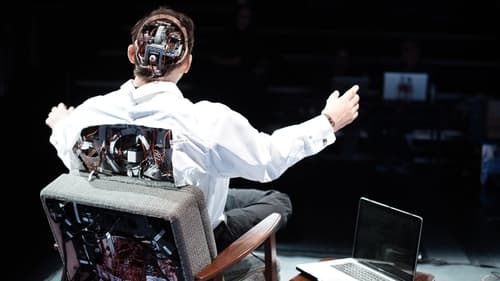
Director
In the 60th year of the revolution, four young Cubans search for traces of history: Daniel, whose grandfather Faustino Pérez became the first minister for nationalization of property after the revolution, still has a catalog from an auction where confiscated berets and seaside villas were sold. Software programmer Christian traces his grandfather’s path to the Angolan civil war, and Milagro, a history student, tries to understand why the revolution that enabled her to study barely allows her to earn a living when she becomes a professor. Diana is a musician whose grandfather was once one of the founding members of the Orquesta Maravillas de Florida.

Writer
We mostly think of robots as work machines, as efficient and precise executors of tasks. In German industry, they barely look like people, to avoid emotional complications. Unlike in Asia, where humanoid robots have already been developed for some time, for example for care-work or as sex partners. The external similarity to human beings makes the acceptance of machines easier. However, if the machine is too similar to a human, we begin to feel mistrust: what is human, what is machine? Japanese robotics researchers call this weird similarity the “uncanny valley”. For his play, Stefan Kaegi works with a writer and playwright for the first time: Thomas Melle allowed an animatronic double of himself to be made. This humanoid takes the author’s place and throws up questions: what does it mean for the original when the copy takes over? Does the original get to know himself better through his electronic double? Do the copy and his original compete or do they help each other?

Director
We mostly think of robots as work machines, as efficient and precise executors of tasks. In German industry, they barely look like people, to avoid emotional complications. Unlike in Asia, where humanoid robots have already been developed for some time, for example for care-work or as sex partners. The external similarity to human beings makes the acceptance of machines easier. However, if the machine is too similar to a human, we begin to feel mistrust: what is human, what is machine? Japanese robotics researchers call this weird similarity the “uncanny valley”. For his play, Stefan Kaegi works with a writer and playwright for the first time: Thomas Melle allowed an animatronic double of himself to be made. This humanoid takes the author’s place and throws up questions: what does it mean for the original when the copy takes over? Does the original get to know himself better through his electronic double? Do the copy and his original compete or do they help each other?


